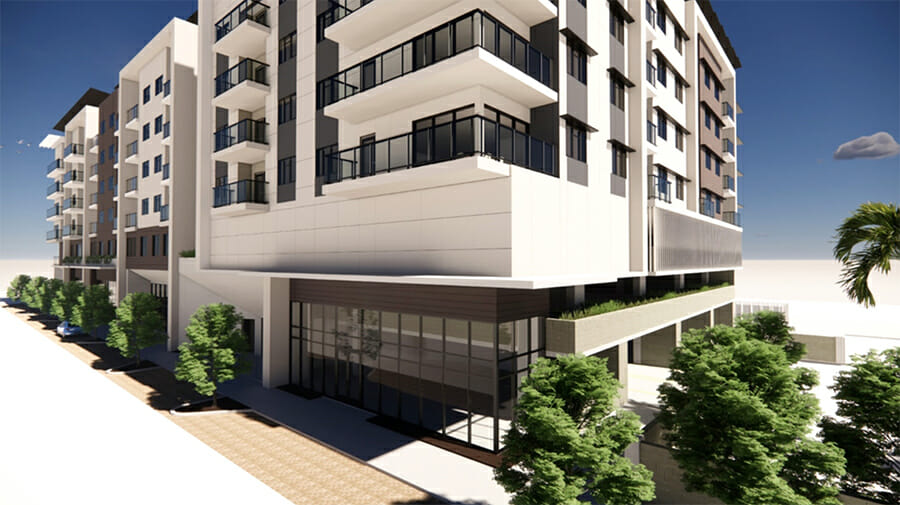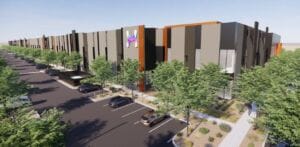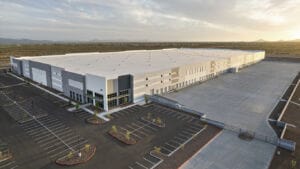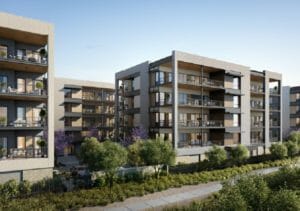Each year, more people are becoming environmentally conscious. A 2019 study led by Southern Cross University found that 93% of respondents have a general concern for the environment and 77% want to learn how to live a more sustainable lifestyle. Products such as plant-based meats and electric vehicles have broken into the mainstream and are posed to gain market share as innovations continue to drive down the sticker price. While no one can predict the future, it’s likely green.
To that end, Habitat Metro broke ground on ECO Mesa on Nov. 13, a 102-unit apartment complex that helps residents reduce their carbon footprint with sustainability-focused features. For Tim Sprague, a founding principal of Habitat Metro, green development is not a gimmick, fad or trite selling point.
READ ALSO: Phoenix is No. 1 in U.S. for multifamily construction projects
“I have seven grandkids. If we don’t start doing something about building things sustainably, this world is going to be very different for them,” he says.
The structure itself incorporates cutting edge components that make for an environmentally friendly building. A water catchment system captures greywater to irrigate the landscape rather than using potable water. The project will also have charging stations available for electric vehicles.

Residents can participate in a car share program, which has a limited amount of hybrid vehicles that can be reserved. If someone ends up needing the vehicle longer than expected, they can pay for an extension.
Sprague explains that the complex was designed from the inside out to ensure it is as efficient as possible. The insulation used and components chosen for the outside of the apartments are carefully selected to reduce energy consumption.
“We want to make sure that the building doesn’t leak air. If it’s insulated well, and you’re using materials that literally make it not leak, the amount of energy used is reduced in a meaningful way. If you’re adding solar to the source of energy for the building, the whole thing combined just makes a much more sustainable building,” he says.
Even how the construction supplies arrive on site is considered. “We try to source materials that are that are close by and won’t produce a large carbon footprint. We want to make sure that they are not what we call redline materials, which affect the air quality inside the unit. It goes all the way from plywood to insulation,” Sprague explains.
Having the right people who embrace the philosophy behind ECO Mesa, from consultants to construct workers, is paramount, according to Sprague. “It’s also important to make sure that the management of the facility itself is done by folks that will pay attention how the building is run. We want to make sure that we planned to build continues on after it’s finished,” he says.
Sprague concludes, “We want to set an example of how you can build something sustainable within economic reason. When we finish, we will share all of what we’re doing with everybody else. And the reason why we will do that goes back to what I said about my grandkids. The future is important. Hopefully, we can contribute in a small way and help educate a little bit. If we can do that, we’re happy.”




